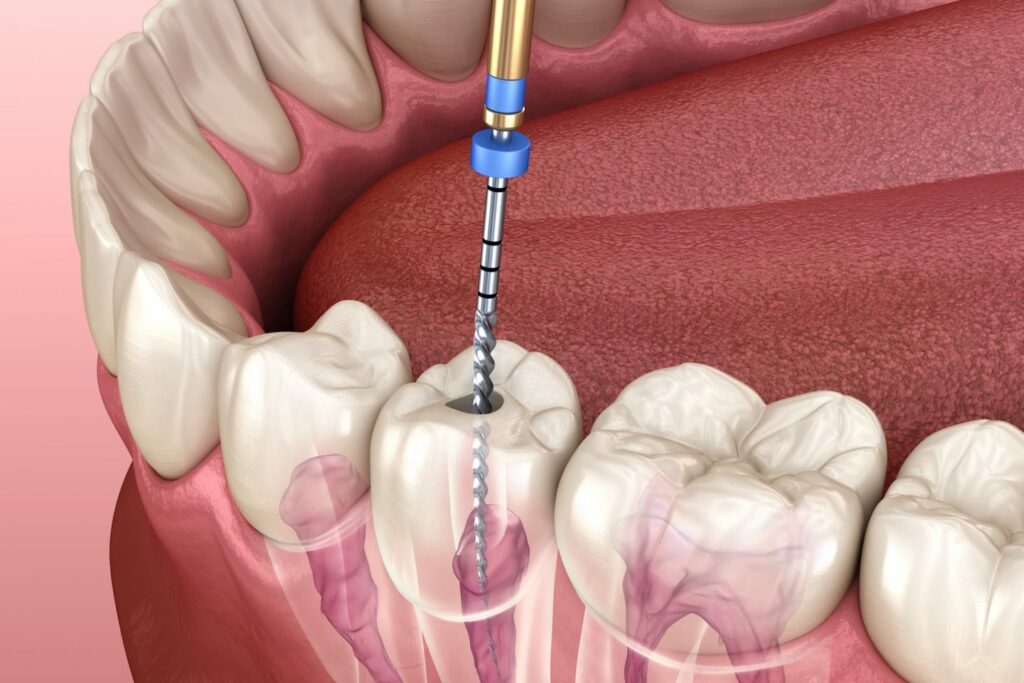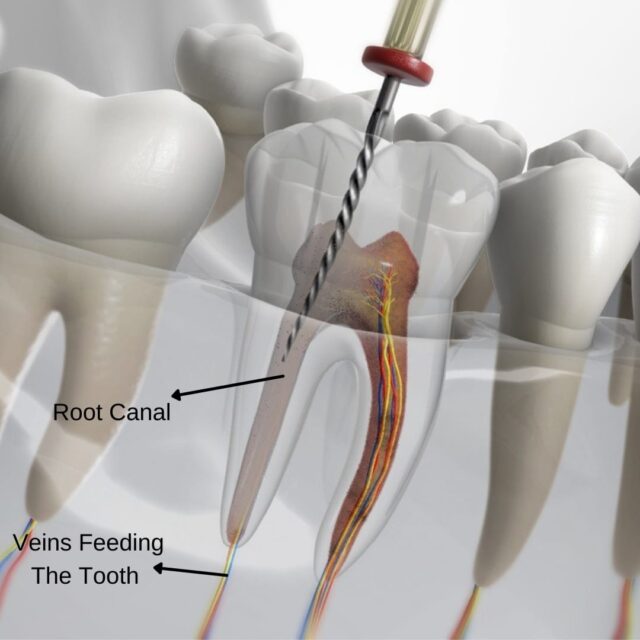Root Canal Treatment

When do we need Root Canal Treatment?
Root canal treatment is started when the pulp becomes inflamed or infected. The causes usually relate to deep tooth decay, repeated dental procedures, and trauma to the tooth that causes a cracked crown, or/and root fracture. Unusual causes such as Gum disease may also lead to root canal treatment.
What is the success rate of Root Canal Treatment?
Root canal-treated teeth can last a lifetime, as long as you continue to care for your teeth and gums. If properly treated, the success rate of root canal treatment is over 95%.
What are the steps for Root Canal Treatment?
Step 1
Local anesthesia is administered via injections to numb the tooth to be treated and the surrounding tissues.
Step 2
A dental dam in place is used to isolate the infected teeth from the rest of the mouth.
Step 3
An access hole is drilled through the biting surface of an affected back tooth or from behind a front tooth, allowing access to the pulp chamber and root canals for treatment.
Step 4
The diseased and dead pulp tissue is removed from the tooth with specially designed instruments. This is painless as the area is numb.
Step 5
The canals are disinfected with antiseptic and antibacterial solutions during the whole procedure.
Step 6
The canals are then shaped with very small flexible instruments to allow them to receive root canal fillings and sealers.
Step 7
A very bio-compatible rubber-like material called gutta-percha is used to fill the canal space in addition to the sealer. Several techniques to deliver the gutta-percha and sealer into the root canal.
Step 8
A temporary or permanent filling material will then be placed to seal the access hole that was made to treat the canals.
Step 9
According to many studies, it is recommended to place direct or indirect permanent restoration with cuspal coverage after root canal treatment to assure full protection of the root canal-treated tooth and avoid any bacterial reinfection.
Post root canal treatment symptoms are minimal, generally lasting from a couple of days to about two weeks. It is normal to have some minor discomfort after treatment such as slight soreness that can usually be managed with over-the-counter (aspirin, ibuprofen, paracetamol) medications or prescription drugs, or both.




